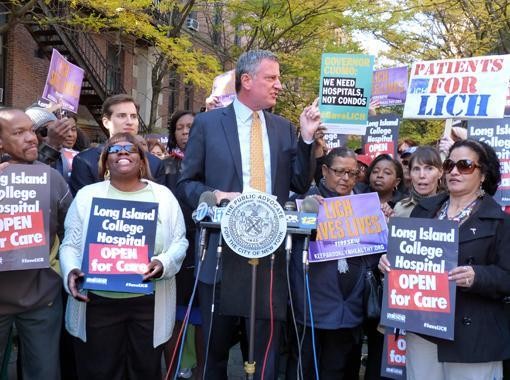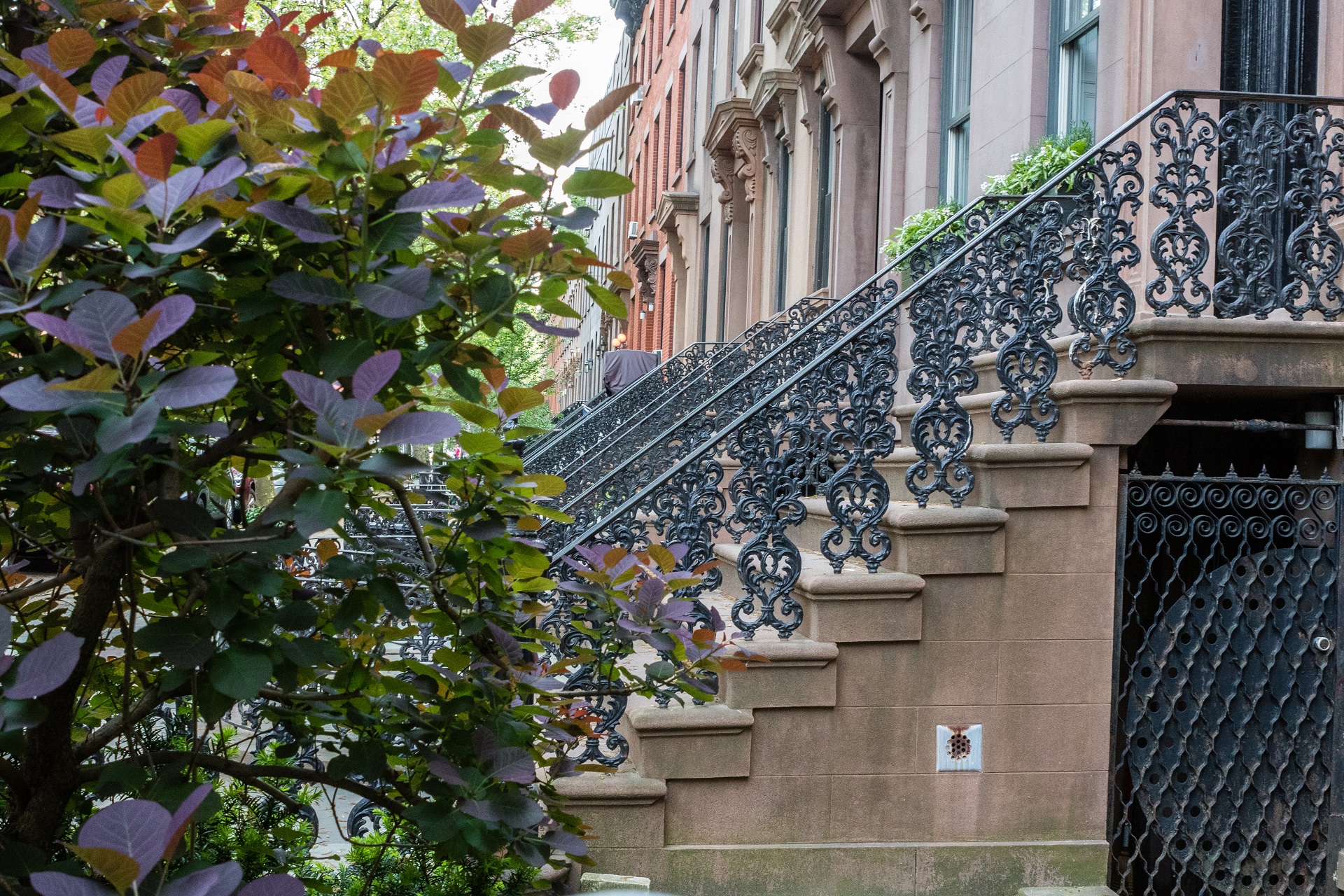De Blasio: City will cooperate in LICH probe
"Absolutely ready to cooperate in every way”

Mayor Bill de Blasio, who supported the idea of saving Long Island College Hospital (LICH) while running for Mayor (as seen above), says the city will cooperate with an investigation over his support of the sale of the hospital to developer Fortis. Photo by Mary Frost
Mayor Bill de Blasio on Monday insisted that the city acted appropriately in the controversial sale of Long Island College Hospital (LICH), and said his administration is “absolutely ready to cooperate in every way” with any federal probe into his role in the sale.
U.S. Attorney Preet Bharara is reportedly investigating de Blasio’s involvement in the sale of LICH to Fortis Property Group. The hospital was owned at that time by the State University of New York (SUNY).
The sale ignited protests and a years-long legal battle. De Blasio, as public advocate, led rallies, participated in a lawsuit and arranged to have himself arrested for the “Save LICH” cause. But he abruptly dropped his opposition to the sale after he was elected mayor.
